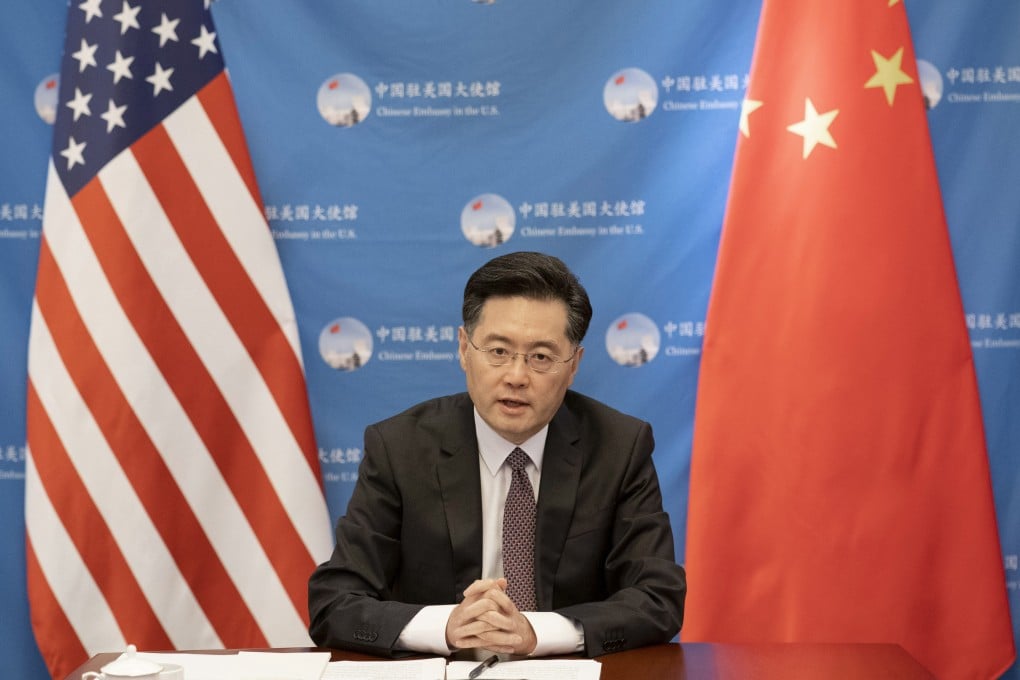China’s US ambassador decries ‘political virus’ hurting bilateral economic ties between ‘natural partners’
- Qin Gang blasts tariffs and says China is ‘mindful of more difficulties and challenges’ in trade and business with the US
- Analysts suspect that some tariffs imposed by Washington may be lifted as part of a broader effort to tame inflation levels that have reached a four-decade high in the US

China’s top diplomat in the United States has called on Washington to stop politicising trade issues, and to remove punitive tariffs imposed on Chinese products.
In response, analysts suggested that a partial removal of tariffs may be likely, but any such actions would be primarily in the US’ domestic interests. And they also cautioned against expecting a substantial improvement in overall bilateral ties.
In an interview with Forbes published on Thursday, ambassador Qin Gang said a “political virus” in the US, such as abuses of national security, is hurting bilateral economic ties, as more than 1,000 Chinese companies have been put on lists of trade restrictions and sanctions by the US.
But he also played up the prospects of trade cooperation between the two countries, which have seen heightened rivalry on almost all fronts, including hi-tech, security, space and ideology, in recent years.